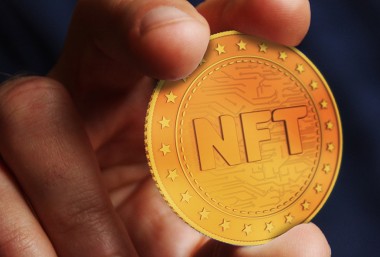You’ve probably recently heard about something called “NFTs” and about various digital artworks and videos being “sold” for significant sums. According to Nonfungible.com, more than US$2 billion was spent on NFTs in the first quarter of 2021 alone. And it’s getting bigger!
Some examples in the media:
- Charlie’s Last Bite (video) – US$760,999
- Disaster Girl (image) – US$500,000
- Overly Attached Girlfriend (image) – USD$411,000
This alone should be enough to raise heads and make you ask questions. But what questions should you be asking? Well, for trade mark lawyers, you need to be aware there is currently a huge landgrab going on to register NFT-related trade marks. Your clients need to think about whether this is just a temporary fad or something they need to get in on.
The first question is, what is an NFT? Well, it stands for "non-fungible tokens". Basically, just a bit of data sitting on a blockchain somewhere. Hopefully, you already know what a blockchain is? If not, it's a computer file stored across many different computers (online). It is used to keep track of things like financial transactions or, in this case, "ownership" of certain digital assets. Think of it like a digital version of a ledger that would be used by an accountant to keep track of all your money. Think about that "ledger" that was used to catch Al Capone for tax evasion. It's a software version of that. And the NFT or "non-fungible token", is like an entry in that ledger that shows who owns a particular asset, in this case a video, image, or any other digital asset you can think of.
The next question is, just what do you own if you buy an NFT? The answer is it depends. You may own just one copy of a limited run of a digital asset, or perhaps you own the only copy. A more interesting question is whether you own the copyright to the image, or perhaps some licence to use the copyright in that digital asset for certain purposes such as to display or commercialise it. The important thing is to know what you are buying and price it accordingly.
Over the next few weeks, I’ll provide some suggestions for how businesses who deal with NFTs should be protecting their NFT-related trade marks. It’s a bit different to your standard run of the mill business!










